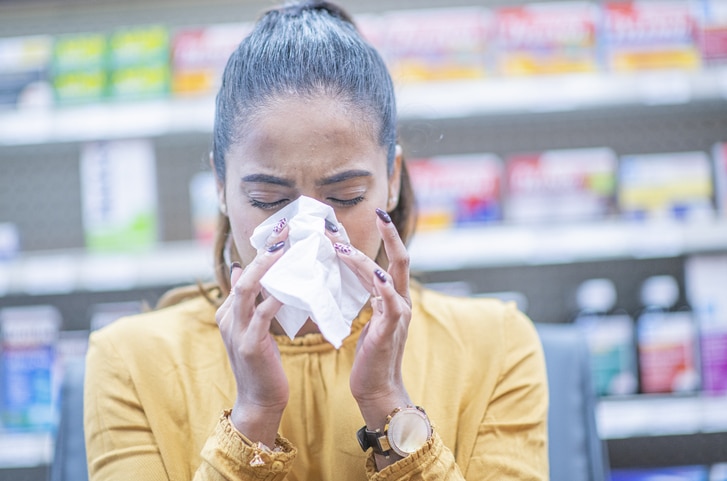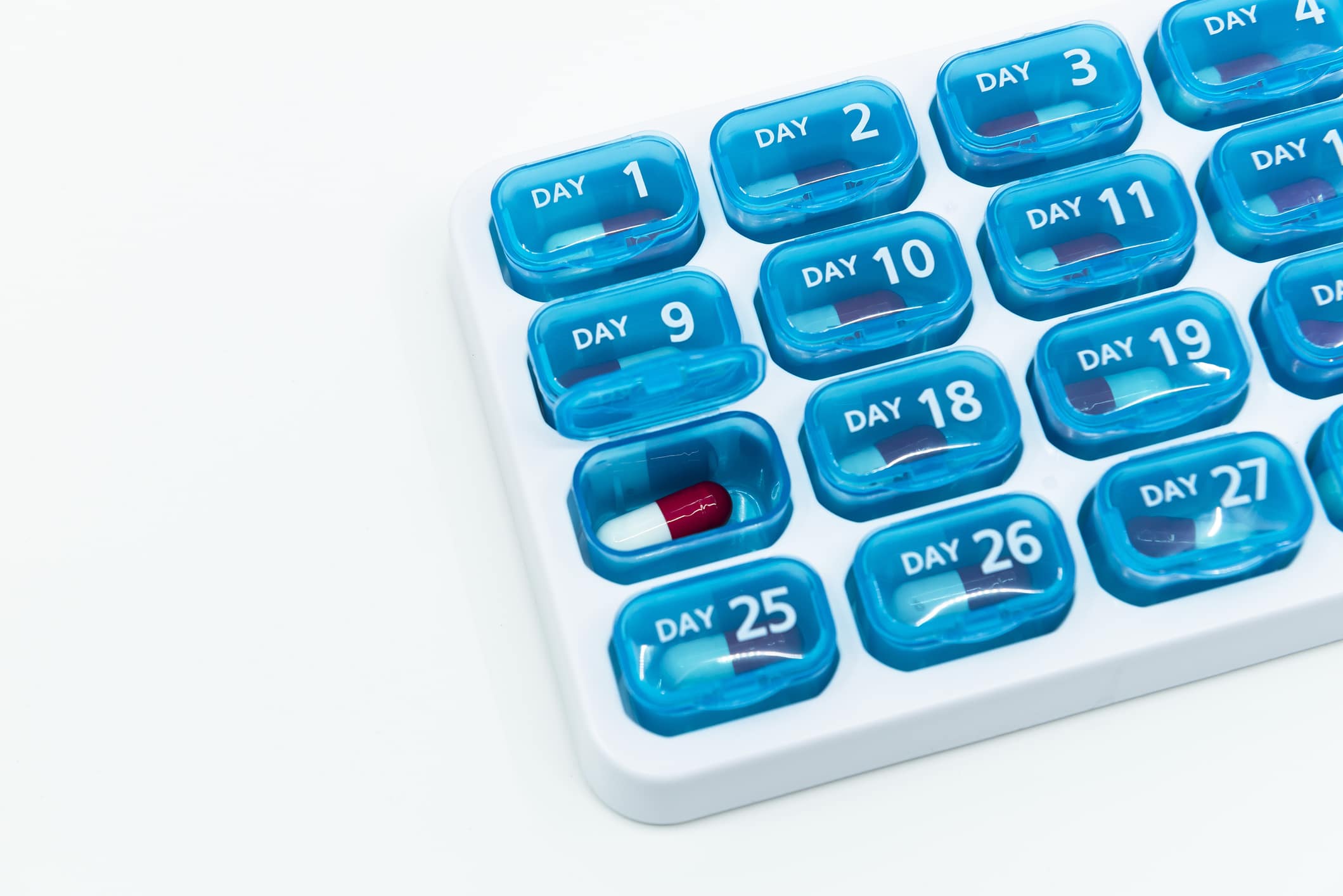Allergy season never really ends in North Texas, but are antihistamines, also known as allergy medications, safe to use every day indefinitely?
That depends on the drug, says Thomas Frank, MD, otolaryngologist on the medical staff at Methodist Richardson Medical Center.
Some highly effective sprays can become habit-forming and create rebound symptoms, he says, while the latest generation of antihistamines have almost no side effects.
“There are nearly no long-term concerns at all with those allergy medications,” Dr. Frank says.
Most allergy sufferers rely on a daily antihistamine pill or corticosteroid spray, and Dr. Frank says they are all safe to use without fear of forming a habit or building up a tolerance.
Here’s a deeper dive into those medications, some of which come with a few precautions.

ANTIHISTAMINE PILLS
Antihistamine medications work by blocking the chemicals that cause us to suffer an allergic reaction.
They generally fall into two “generations.” First-generation medications like Dramamine, Dimetapp, Nyquil, and Benadryl target histamine receptors in the nervous system and can cause drowsiness because they cross what’s called the “blood-brain barrier.”
“They are stronger for reducing allergy symptoms, but they can cause some drowsiness, and they don’t last all day,” Dr. Frank says.
This type of medication, also called anticholinergics, can cause confusion and falls among older adults. Research has also linked their long-term use to an increased risk of dementia. Doctors also recommend against taking first-generation antihistamines if you suffer from heart disease, high blood pressure, asthma, or emphysema.
Second-generation antihistamines like Allegra, Zyrtec, Clarinex, and Claritin came along in the 1980s, 40 years after the first-generation drugs. They cause less drowsiness and can last for up to 24 hours.
Another benefit of second-generation antihistamines is that they interact with fewer medications. So if you take many other prescriptions, the newer antihistamines are a safer bet, experts say.

TYPES OF NASAL SPRAYS
Many allergy sufferers turn to sprays for relief. These, too, are safe to use on a daily basis — with some minor exceptions.
Dr. Frank separates these nasal sprays into five different “flavors,” almost all of which are available over the counter:
- Saline rinses are the natural way to keep nasal passages clean and moist and ease sinus inflammation. Whether using an over-the-counter squirt bottle, a home brew of distilled water and kosher (non-iodized) salt, or a neti pot, it’s a proven way to clear pollen and other allergens from the mucous membranes. “The majority of people can manage mild allergy symptoms with a saline rinse to clean the nose,” Dr. Frank says. “That way, pollen and other allergens don’t linger in there.”
- Corticosteroids, like Flonase, work by decreasing inflammation in the nasal passages. These must be used daily or twice daily for a few weeks to make a noticeable difference. Side effects for these are minimal, but Dr. Frank offered a word of caution: “They may contribute to cataract formation, but that’s never been proven conclusively.”
- Antihistamine sprays, like Astepro, block histamines directly in the nose and work best at stopping a runny nose. The most common complaint regarding these medications is their bitter taste.
- Nasal anticholinergics, like Atrovent, are used to treat nonallergic triggers for rhinitis, whether it’s hormonal, nerve-driven, or a virus. Dry mouth and bad taste are the typical side effects.
There’s a fifth type of nasal spray, however, that works better than any of these — but it also can cause a habit-forming rebound effect.

WHAT TO WATCH OUT FOR
Decongestant sprays, like Afrin or Sinex, work by constricting the blood vessels in the nose and can help with a nasty cold or an especially bad allergy episode.
These sprays, whose active ingredient is typically oxymetazoline, can become habit-forming and should not be used for more than three days in a row.
“These will outperform every other nose spray I’ve mentioned,” Dr. Frank says. “But if you use them for more than three days, you get what’s called the rebound phenomenon as it wears off.”
That rebound congestion can create a vicious cycle where a patient feels like they need the spray just to breathe normally and sleep soundly.
“Those are the sprays to watch out for,” Dr. Frank says. “It’s kind of strange that for decades, the one spray that has the most addiction has always been available over the counter and the easiest to get.”

USE AS NEEDED, WITHIN REASON
The bottom line is that most of these medications are safe to take on a daily basis. Some patients take more than one or mix and match a nasal spray with an antihistamine pill.
But Dr. Frank notes that taking a preventive medication forever may not be for everyone. There may be a better option for allergy sufferers who can’t find relief no matter how many drugs they take.
“If you’re still struggling taking two, three, or four medicines a day, I would encourage you to consider making yourself less allergic,” he says.
That means a trip to a specialist who can offer an allergy test and, potentially, immunotherapy treatment.






